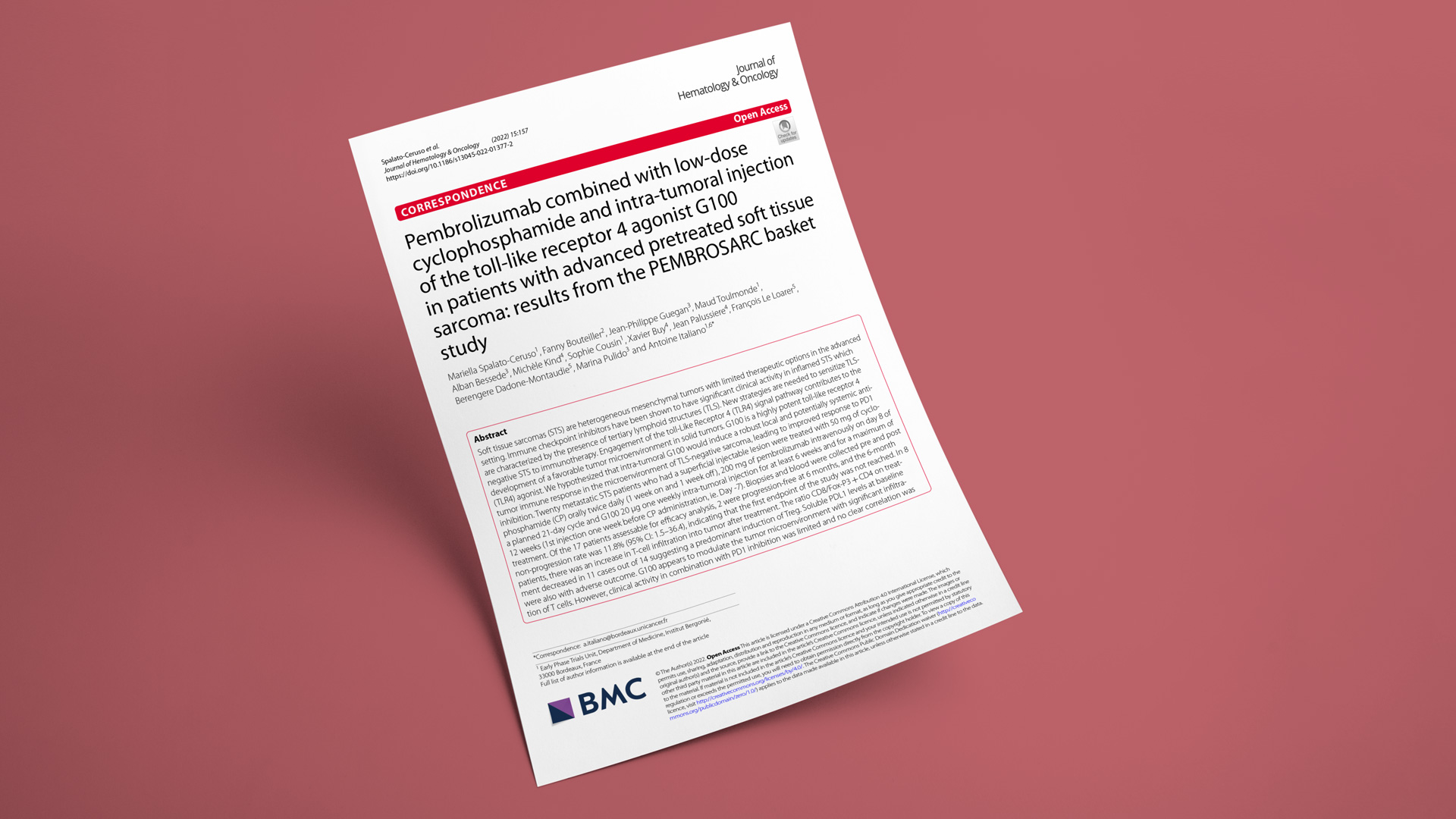Journal of Hematology & Oncology, 2022, October 27
Mariella Spalato‑Ceruso, Fanny Bouteiller, Jean‑Philippe Guegan, Maud Toulmonde, Alban Bessede, Michèle Kind, Sophie Cousin, Xavier Buy, Jean Palussiere, François Le Loarer, Berengere Dadone‑Montaudie, Marina Pulido and Antoine Italiano
Abstract
Soft tissue sarcomas (STS) are heterogeneous mesenchymal tumors with limited therapeutic options in the advanced setting. Immune checkpoint inhibitors have been shown to have significant clinical activity in inflamed STS which are characterized by the presence of tertiary lymphoid structures (TLS). New strategies are needed to sensitize TLS-negative STS to immunotherapy. Engagement of the toll-Like Receptor 4 (TLR4) signal pathway contributes to the development of a favorable tumor microenvironment in solid tumors. G100 is a highly potent toll-like receptor 4 (TLR4) agonist. We hypothesized that intra-tumoral G100 would induce a robust local and potentially systemic anti-tumor immune response in the microenvironment of TLS-negative sarcoma, leading to improved response to PD1 inhibition. Twenty metastatic STS patients who had a superficial injectable lesion were treated with 50 mg of cyclophosphamide (CP) orally twice daily (1 week on and 1 week off), 200 mg of pembrolizumab intravenously on day 8 of a planned 21-day cycle and G100 20 µg one weekly intra-tumoral injection for at least 6 weeks and for a maximum of 12 weeks (1st injection one week before CP administration, ie. Day -7). Biopsies and blood were collected pre and post treatment. Of the 17 patients assessable for efficacy analysis, 2 were progression-free at 6 months, and the 6-month non-progression rate was 11.8% (95% CI: 1.5-36.4), indicating that the first endpoint of the study was not reached. In 8 patients, there was an increase in T-cell infiltration into tumor after treatment. The ratio CD8/Fox-P3 + CD4 on treatment decreased in 11 cases out of 14 suggesting a predominant induction of Treg. Soluble PDL1 levels at baseline were also with adverse outcome. G100 appears to modulate the tumor microenvironment with significant infiltration of T cells. However, clinical activity in combination with PD1 inhibition was limited and no clear correlation was observed between tumor shrinkage and increased inflammation. TLR4 stimulation might have both antitumor and pro-tumor consequences.

